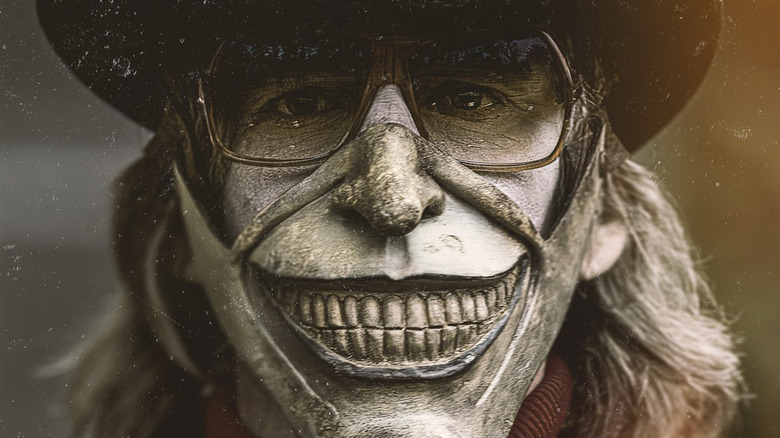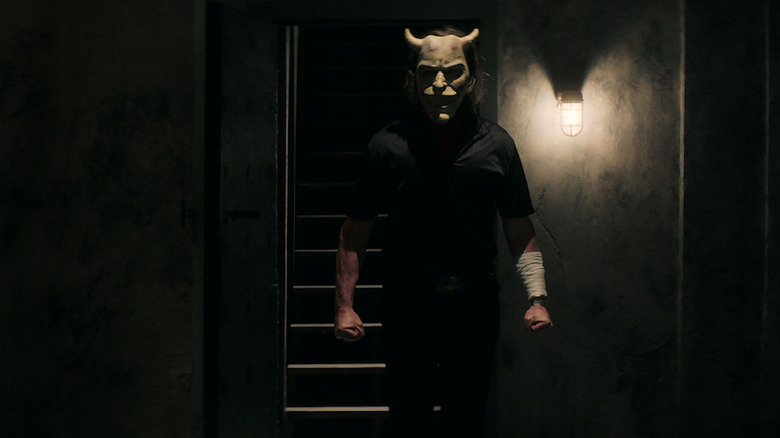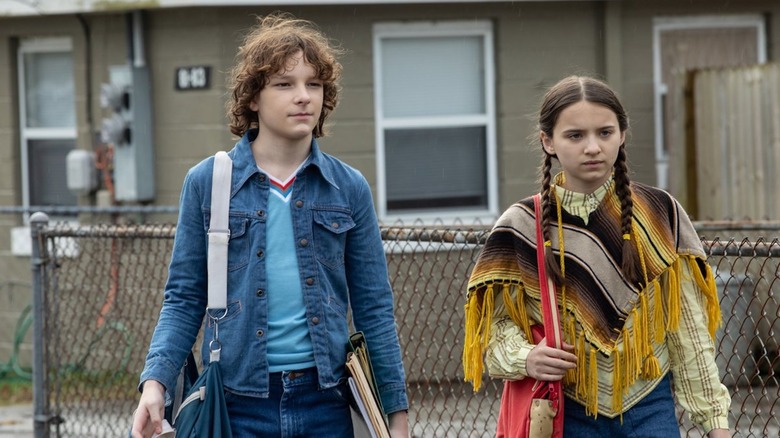
If you know me or my work, you know I'm a Stephen King guy. My (far too) early childhood viewings of adaptations of his work like "The Shining" and "Stand By Me" tempted young me to pick up my very first King book in the sixth grade. It was "Cujo" and I'd read it in snippets while my teacher wasn't looking, hiding it in my perfectly-sized pencil box when their Sauron-like gaze fell my way.
About halfway through the book, most of which I didn't fully understand but could keep up with thanks in no small part to having seen the movie version, I made a pledge to myself that I'd read everything he's ever written; a pledge, I might add, that I kept.
One of the fringe benefits of being obsessed with King was that I came to Joe Hill's work earlier than most. I'd wager that Hill really started his ascension with his comic book work (if you haven't read any of his "Locke & Key" comic series, I highly recommend it), but for me it started with the double whammy of his short story collection "20th Century Ghosts" and his novel "Heart-Shaped Box." He came right out of the gate swinging, stepping out of the shadow of his father and blazing his own trail. I tore right through "Heart-Shaped Box" and would recommend it to any horror fan, but I think what really hooked me were his short stories.
Yes, he plays with horror, and delights in some extremely cruel things, but the emotion Hill imbues his stories with, especially his short stories, is the real sweet spot. The titular story in "20th Century Ghosts" is about spirits that frequent an old movie theater and marries my love of genre fiction and my cinephile tendencies. If ghosts are real and the day comes when it's time for me to check out, you'll probably find my spirit chilling at a movie theater, watching movies and knocking phones out of rude texters hands like I'm Vincent Schiavelli in "Ghost."
Hill's work hasn't been adapted as frequently as his dad's, but his track record is pretty good. "Horns" is fun, the "Locke & Key" Netflix series is well-done and definitely faithful, "In the Tall Grass" is an effective thriller, and "NOS4A2" has a pretty dedicated fanbase. But I think "The Black Phone" might be the best adaptation of Hill's work so far.
Heart Plus Horror

"The Black Phone" had its world premiere at Fantastic Fest last night with director Scott Derrickson and co-writer C. Robert Cargill (who previously collaborated on "Sinister" and "Doctor Strange") in attendance. I went in optimistic, because Derrickson's a hell of a shooter, but if I'm being honest, I was a little curious how the adaptation would stretch the central conceit of the not-even-20 page story into a feature.
I'll avoid any major spoilers as I dive into this review, but if all you want to know is if it's good or not, then I'll say it's really damn good right up front. If you're sold and haven't read the short story, then why not go in cold? The film has a release date of January 2022, so you have a little time to sit and wait, but it's worth it. Trust me.
The movie's about a young boy named Finney (Mason Thames). He's a kind-hearted kid and that makes him a target for the school's bullies. He's a good kid, but isn't a fighter. In fact, his much younger foul-mouthed sparkplug of a little sister (Madeleine McGraw) is the fighter of the family.
Children have gone missing in his town for quite a while. The locals call the mysterious perpetrator "The Grabber" (Ethan Hawke) and, as I'm sure you've guessed by now, Finney becomes the latest victim of this child abductor. It's up to Finney to find a way to get over his fear and get out of his basement prison, but he does have help.
Undead help, but hey, you take what you can get in these kinds of situations.
There's a black phone in the room with him and although it's disconnected, young Finney hears it ring. The voice on the other end of the line is one of The Grabber's previous victims. A dead kid, in other words, but one that tries to help Finney survive.
This film lives or dies on two very key performances. The first is the villain, a mask-wearing psycho played with great relish and dedication by Hawke, and the second is Finney himself. Finney is the most important character in this thing because if the actor comes across as precocious or "acty," the whole movie falls apart. You won't buy it and if you're not invested then the scares don't work.
It's a lot to ask of any actor, let alone a tween actor. He's alone in a room for a good chunk of his screen time. Finney's a realist that has to be proactive about his situation, but at the end of the day he's still a kid who was plucked off the street and smart enough to know what's ultimately going to happen to him.
Mason Thames absolutely knocks it out of the park here, carrying the movie with confidence and a sense of reality that you need in order to make the supernatural stuff hit home. That's the Joe Hill sweet spot. Heart plus horror.
Commanding Your Attention

I have a feeling Madeleine McGraw, who plays Finney's younger sister, will be getting a lot of the attention because she has a really fun, funny character that can't help but steal every scene she's in. And she earns all the praise she's going to get from this movie. This is the same kind of role and performance that demands you pay attention to this child actor in much the same way Julia Butters commanded your attention in "Once Upon a Time in Hollywood. However,' I'm saying right here and now that the reason this movie landed the way it did for me was Thames' nuanced, complex and sympathetic work as the lead boy.
Before I get into talking about the villain, I do have to give a shoutout to the great character actor James Ransone, who brings in the right kind of lightheartedness at just the right moment. He's not in the movie a whole lot, but you certainly perk up when he is.
For his part, Hawke plays the villain perfectly. For the vast majority of the movie, he's wearing a segmented devil mask (designed by the legendary Tom Savini, no less), which is interesting as well. The only voices Finney hears while kidnapped are muffled, either by his abductor's mask or by the haze of static on the undead phone. The only clear voice he has to rely on is his own.
Playing a creepy child-killer is probably not a very attractive part for a lot of actors, especially those like Hawke who don't typically play villains, but the man fully commits and the results are horrifying. It's not the overly threatening moments with this guy that get under the skin. It's when his words are kind and loving when the skeevies really start crawling up and down your spine. The way The Grabber is portrayed is one of the biggest deviations from the short story. In the story he's essentially just John Wayne Gacy. This version is far creepier and complex and way scarier.
Derrickson and his crew took a neat little horror concept from an actually short short story and were able to expand upon it in ways that both make sense and don't feel like filler. There's a complicated family story barely hinted at in the short story that is more fleshed out here, particularly when it comes to Finney's little sister.
For my money, "The Black Phone" is more complete and effective than Derrickson's previous horror movie "Sinister" and is the first feature adaptation of Joe Hill's work that demands more big-screen Joe Hill adaptations. Hopefully, Hollywood answers that call.
/Film Rating: 8.5 out of 10
Read this next: Upcoming Horror Movies That Will Freak You Out
The post The Black Phone Review: Scott Derrickson Delivers the Best Joe Hill Adaptation Yet [Fantastic Fest] appeared first on /Film.
0 Commentaires